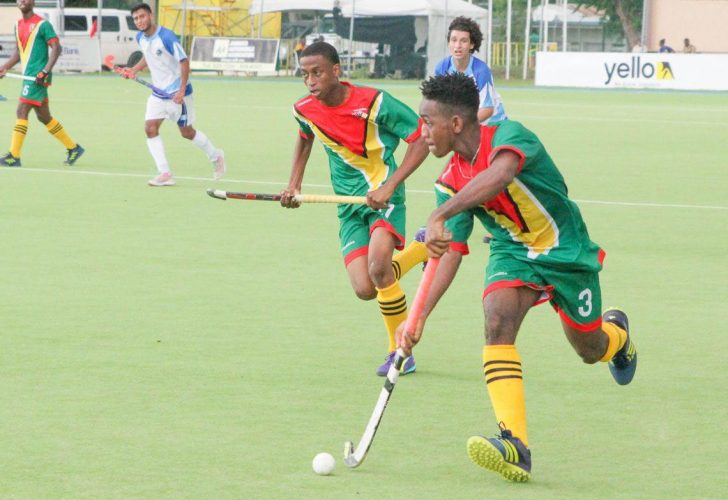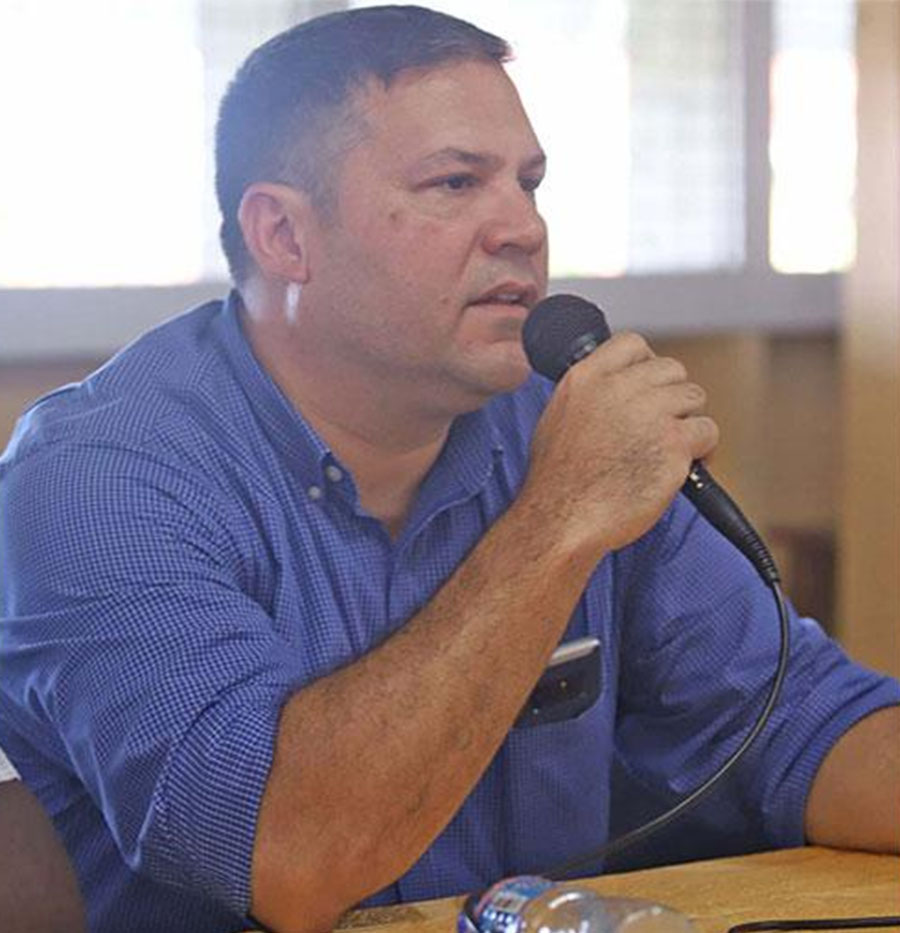By Michaelangelo Jacobus
In early October at the opening of the Guyana Hockey Board (GHB) first-division men and women’s leagues at the Providence National Stadium, Minister of Culture, Youth & Sport, Charles Ramson Jr., had issued a challenge to the hockey community, to start decentralizing the sport. That challenge is being seriously considered by the GHB according to it’s president, Philip Fernandes.
The spread of the sport nationwide is especially appealing due to the yet to be discovered talent that is sure to be present in the various regions across Guyana.
In an exclusive interview with Stabroek Sports, Fernandes spoke at length about the benefits that could be had from the sport going countrywide.

“We think it is a great idea, it is something we must make every effort to achieve. It will be expensive, it will require a lot of energy and effort from the local administration to be able to go out and to be able to send people out to spread the game, but it is the kind of thing that can reap great benefits to the game, spread it and grow it in the volumes of which the minister has challenged us to do,” declared Fernandes.
In fact, Fernandes is of the firm belief that decentralization is key to any sport association that is keen on development and upliftment.
“The minister has asked the hockey board to spread the game and diversify it, to truly make it a national sport. This is definitely the way sports associations should always try to develop themselves. We agree and we take it seriously and we hope to try to put a plan in place to head us in this direction,” he added.
However, as promising as the decentralization of the sport sounds, it is not without its own unique challenges, something Fernandes said that the GHB can attest to, having previously made attempts to do so in the past.
“We have made attempts in the past and it has proven difficult to sustain, reason being, because the sport is centralized at the moment, there are far more clubs and far more competitions taking place in the city. It means that any team developing outside of the city would then have to commute often to the city to compete. In the past the cost has proven difficult for teams and therefore it was difficult for them to sustain regular competition attendance and keep themselves going as a club.”
Despite those challenges, the GHB is actively seeking solutions to those issues primarily with the help of corporate sponsorship.
“We have to find a way around this, maybe tournaments sponsored that include a budget for teams coming and going and teams in the city traveling out to those regions. But that of course is an increase in cost, we have to hope that with what is happening in Guyana, in terms of the development of new international companies coming in and looking to do their corporate social responsibility that we may find companies willing to support us with slightly larger budgets to accommodate this kind of activity, he said.
Another major factor that would deter the decentralization of hockey according to Fernandes is the technical knowledge that would have to be taught to new coaches and players.
“The major challenge with getting the game spread is to have hockey knowledgeable coaches based in those locations. Hockey is a very technical sport and has a multitude of highly technical skills involved so it is not easy to take someone who might just be a regular teacher and just teach them the game in a short space of time. It means we would have to have people with expertise from the city go out and spend extra time in those locations that we plan to develop to be able to train players and teach coaches in those regions to bring themselves up to speed. This is the biggest challenge, then of course there is the challenge of getting equipment and persons willing to coach and maybe providing stipends to coaches in those regions.”
Looking at a suitable timeframe to spread the game, the GHB boss said “I think that a year’s time is certainly sufficient in order to develop the game outside of the city. There are lots of young people, especially in the rural areas that are looking for activities and looking for physical sports to fill their time. There is no shortage of interest and as long as we can put together a plan with a budget and find sufficient sponsorship, I think it is achievable. The timeframe is certainly achievable because of the willingness of young people we have found when we introduced the sport to different areas.”
All in all, the main takeaway for the GHB and Fernandes is the talent that is waiting to be found.
“I think decentralization would be a very good thing. There is talent all around the country and to tap into that talent we have to decentralize. In the past some of our very best players came from Linden, and right now, there is no hockey in Linden. So we must be missing out on quite a bit of talent from that area. We can see it in football, even in athletics, children coming from rural areas who are outstanding talents and no doubt if we can get hockey to those regions we would also find the same” Fernandes ended.
The GHB has been fielding national teams since 1971 with three appearances at the Pan Am Games with a best finish of seventh in 1975. They fall under the Pan American Hockey Federation and have had a best ranking of 52 in 2018. The decentralization of the sport if and when it happens, will surely serve to improve Guyana’s international standing as a hockey playing nation.






